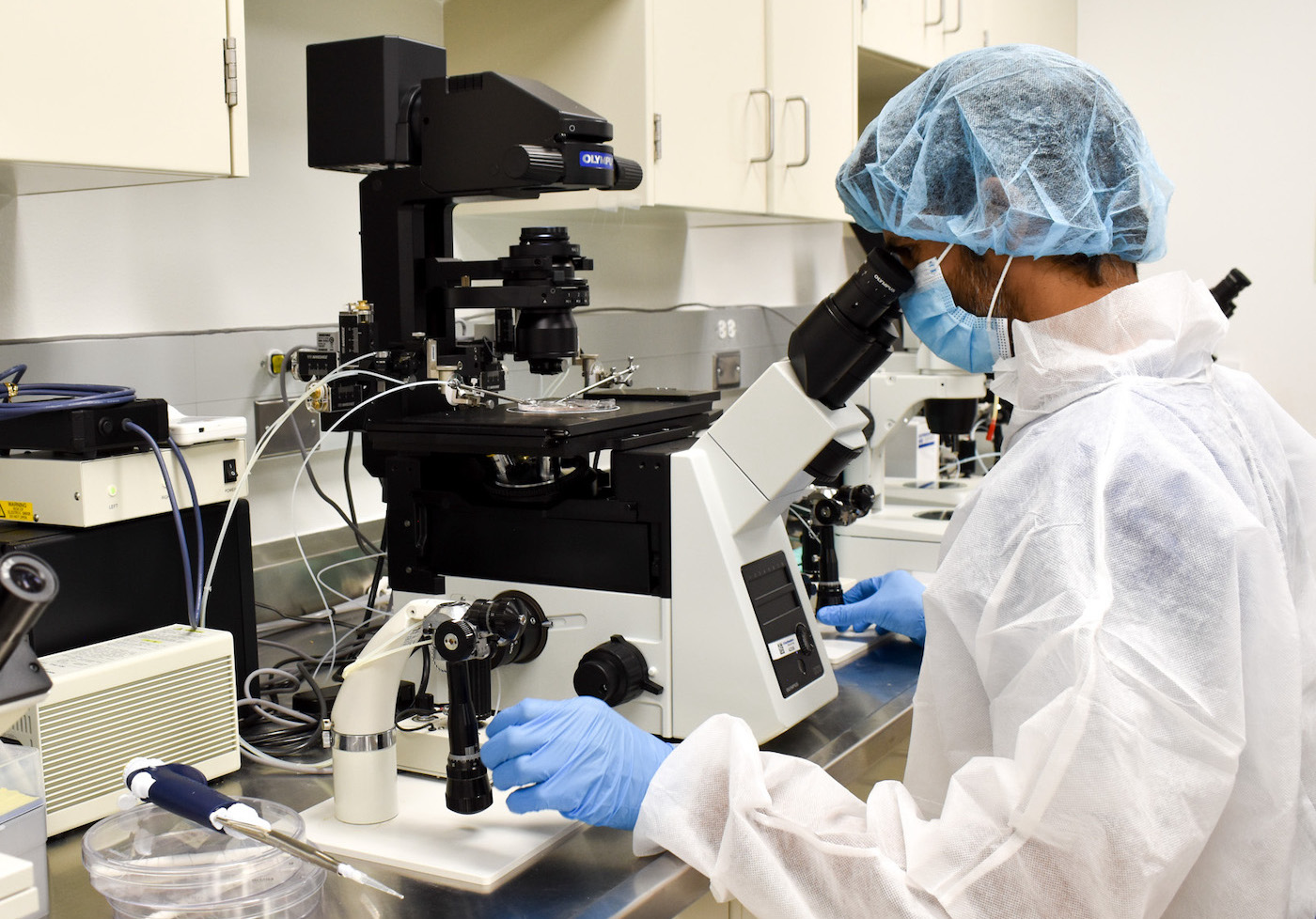Transgenic Mouse Services
We offer a full range of pronuclear injection services for the production of transgenic mice. We routinely perform transgenic mouse production in C57BL/6. Other strains are available upon request.
Submission of DNA
For transgenes less than 20 kb in size, the facility creates transgenic mice from DNA the client provides. For an optimum number of founders, the transgene plasmid should be purified using an endotoxin-free system. The plasmid backbone should be cut from the transgene DNA with restriction enzymes in such a way that the transgene DNA is easily separated from the plasmid backbone by agarose gel electrophoresis. The client should supply the facility with 20 µg of the digested DNA.
Pronuclear Microinjection
All clients are required to complete and submit a request through PPMS before initiating the project. Once the project is accepted by the facility, please arrange to drop off your DNA or other materials to Xiuli Liu in NL12.110C.
The facility will inject the transgene DNA into the pronuclei of embryos and implant them into pseudopregnant recipient females. Pups are typically born three weeks after the injections. We will transfer mice to the client 10 days post birth.
Our pronuclear microinjection service includes injecting up to 400 embryos or the production of three founders, whichever is achieved first. Clients are responsible for genotyping founder mice. Different founder lines may display distinct expression levels; some founders may not transmit the transgene to their offspring, and some lines may not express the transgene at all. The production of three founders gives a reasonable chance to obtain at least one good transgenic line. The facility makes no guarantees with respect to founder production, germline transmission, or gene expression in the founders and their offspring. A deleterious transgene may result in an inability to obtain founders or to obtain germline transmission or expression in the offspring. If no transgenic animals are obtained after injecting 400 embryos, the client will be billed for the service, and we advise a consultation with the facility’s scientific director before attempting additional microinjection projects with that transgene.

